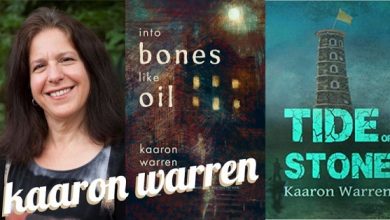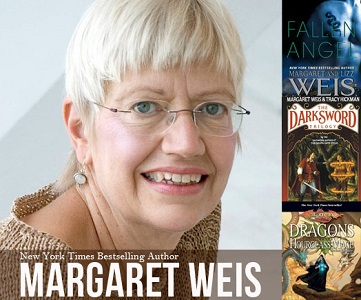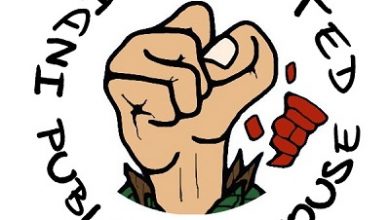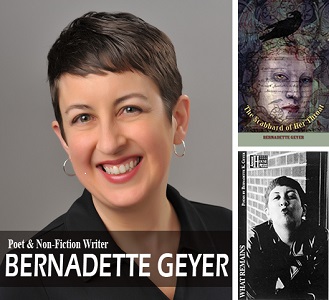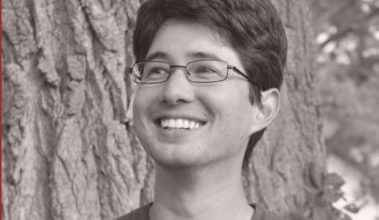Interview with self-published author, Stephen Clarke
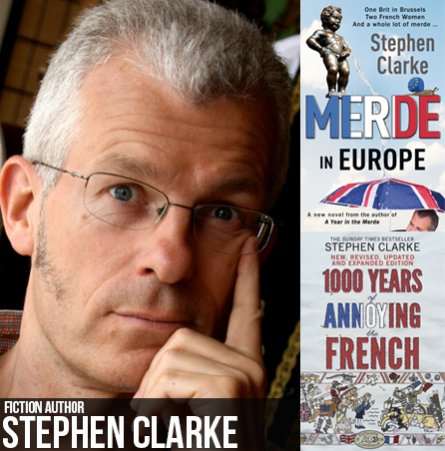 Our final guest interview for 2016 is with successful author, Stephen Clarke. Stephen started his career by self-publishing his first novel ‘A Year In The Merde’. A Year In The Merde, originally became a word-of-mouth hit in 2004, and is now published all over the world.
Our final guest interview for 2016 is with successful author, Stephen Clarke. Stephen started his career by self-publishing his first novel ‘A Year In The Merde’. A Year In The Merde, originally became a word-of-mouth hit in 2004, and is now published all over the world.
“No one wanted it. So I self-published it. I thought it was quite funny, so I wanted to get it out there and let readers decide. I started to sell books door to door in English-language bookshops in Paris, and it just took off. My first print run was 200. A few months later I was selling 1000 a week. That’s when the publishers got interested. Publishers don’t always know what will sell and what won’t. So if you really believe in your work, you have to maintain faith despite all the rejection letters.”
When did you first discover your interest in writing?
When I was four or five. Oh, you mean books? I started with captions and headlines when working for a magazine. From there I graduated to articles, and then on to books. I’ve simply got wordier as time goes on.
You write both fiction and non-fiction. Do you have a preference and if so why?
I enjoy them both. In a novel, you’re free to invent everything, so I can make my characters do whatever I want (within the bounds of credibility). In non-fiction, you’re restricted to telling the truth, but in my case I always try to have an angle, to interpret, or seek out new information about a subject we think we know, as I did for 1000 Years of Annoying the French or How the French Won Waterloo, Or Think They Did. So non-fiction has its freedoms too.
Do you have any hobbies or interests you take part in during your spare time?
Yes, lazing about, not writing. I can’t listen to music while writing, so sometimes I just close my eyes and do that. Everything from the Sex Pistols to Mozart. Anything with a good melody. I also play bass and guitar, and write songs that I go and play at open mics. And I go snorkeling, but not with my guitar.
What are two major reasons that propelled you to write about France?
There’s only one major reason – I live here. It’s my environment. It’s what I know best.
What are two things that have most influenced you and your writing in France?
First, the that I can speak French almost perfectly, unlike Paul West, the hero of my novels, and am a huge fan of language and all its quirks, so I revel in all the misunderstandings that a bilingual environment brings. And second, the simple fact that I’ve lived here for so long – 20 years – so part of me thinks like a Parisian (“go on, push to the front of that queue”) while the other half disapproves. But I know how the French think – and they agree, by the way. They invite me on TV all the time to analyse them.
You’ve had many jobs in your life. Which would you say has been the most challenging? Which one has aided your writing career the most?
The most challenging was washing up in a German hotel. Sometimes those frying pans just refused to get clean. And one day the head chef almost burnt his eyebrows off and I thought he was going to barbecue me. The job that helped my writing career most was working for ten years in a big French company – observing my French colleagues and their way of working gave me masses of material for my first novel, A Year in the Merde.
What was it like translating for French dictionaries? What were some of the most challenging words you had to translate?
It was fun. I was putting new business, computing and slang words into bilingual dictionaries. You should check out my work on motherf*cker in the Collins-Robert Senior. It wasn’t in there before, so French people didn’t know how to translate it. Scandalous. As a joke, I also added in “purple rain” and told the French translators it was a bizarre British weather phenomenon. It got as far as the typesetter before I panicked and confessed.
What’s one of your favorite subjects you’ve written about and why?
French boulangeries. I wrote a scene about the baker’s wives who control the lines to buy bread, and it was quoted everywhere in France – they loved it. It kind of launched me here. Edward VII too, in my book Dirty Bertie. Edward, the son of Victoria, was the king who gave England its Downton Abbey period of garden parties and floppy hats, and he learnt his love of life in France as a young man. He was the most French of English kings.
What ultimately inspired you to write A Year in the Merde?
I realized, after ten years or so of living here, that no one had ever written about everyday life in Paris today. Not just wine and literature, or the rich neighbourhoods where the foreign correspondents hang out, but everyday life as a foreigner living and working here, finding somewhere to live if you can’t speak the language, having to learn that French workers don’t care what their boss thinks, understanding why Parisian drivers try to kill you – all the things that may seem unromantic, but that make it feel so wonderful when you get them right and settle in.
Your first novel, A Year in the Merde, originally became a word-of-mouth hit in 2004, and is now published all over the world. How difficult was it to find a publisher?
Impossible. No one wanted it. So I self-published it. I thought it was quite funny, so I wanted to get it out there and let readers decide. I started to sell books door to door in English-language bookshops in Paris, and it just took off. My first print run was 200. A few months later I was selling 1000 a week. That’s when the publishers got interested. Publishers don’t always know what will sell and what won’t. So if you really believe in your work, you have to maintain faith despite all the rejection letters.
Is the Merde series purely fictional or based on personal experience of life in Paris?
Everything in the books could happen or has happened to me or to people I know, all the places either exist or are like places that exist, and all the characters are amalgams of several people I’ve had contact with. But it’s fiction. Does that make sense?
Is there an excerpt from the Merde series you find especially compelling to give our members a better sense of your work?
Yes, the opening page of A Year in the Merde, where the hero arrives at the office to start his first Parisian job. If you like that, you’ll like the other novels. And the chapter about Champagne in 1000 Years of Annoying the French, explaining how Champagne wouldn’t be bubbly if the French had had their way in the 17th century – that sets out my non-fiction stall. It’s true what they say – the first lines of a book have to grab the reader. And then of course you have to maintain the same level of fun and energy throughout the book, or you’ll lose them.
Do you feel like you relate to anyone or anything in your books and why?
I’ve met lots of people who’ve told me that they came to live in Paris after reading a Merde book – they want to try the fun for themselves. Also, all sorts of immigrants tell me that they relate to Paul West’s problems in France, even if they themselves are Czechs living in London, or Poles living in Germany, or whatever – he’s a sort of universal ex-pat. I know that international companies in Paris give my book Talk to the Snail to their recently-arrived ex-pats, to help them understand their new neighbours. And people always say that 1000 Years of Annoying the French is how history should be taught at school – informative, factual, but fun. I try to make all my books easy to relate to, though not dumbed down. I don’t see the point in being obscure.
What’s one piece of French history you find the most fascinating?
There’s 700 pages worth in 1000 Years of Annoying the French. But to choose one – I found it fascinating to learn that Joan of Arc was betrayed by her own, French, king. He could have saved her from the English, but chose not too. And she was tried for witchcraft by a French judge. She was only handed over to English soldiers to be burnt. So the French hold her up as a martyr to their cause, but they sent her to her death. It’s just one of the ways in which history has been turned on its head.
What importance do you place on cover design and why? Do you think that the cover plays an important part in the buying process?
Yes, huge. Despite what people say, they do judge a book by its cover. I work very closely with designers on my covers, both the image and the wording. I write the back-page blurbs myself, with the help of my editor. Everything counts. But then everything also counts inside the cover, which is why I re-work my texts over and over again before they get published. I argue with copy editors over semi-colons, where to start paragraphs – every detail is important. If you don’t have that belief in every aspect of a book, why should the reader care?
Do you read reviews of your books? If so, do you pay any attention to them, or let them influence your writing?
Yes of course I read them – my publisher sends them to me. If they’re good, I think, oh yes I’m such a genius. If not, I get furious and want to ask the reviewer why they’re talking such sh*t. Writers are human, and it takes a year or more to write a book, and five minutes to write a bad review, so it is a really unbalanced equation. The worst thing is, on certain on-line book sites you can get “reviewers” giving you one star because the packaging was damaged. What, so this book is so badly written that the envelope committed suicide? In general, though, I’m lucky – my books started selling because of word-of-mouth, and people tell me they buy them as presents for friends or family. That kind of approval is more important than any review.
What challenges (research, literary, psychological, and logistical) did you experience in writing the Merde series?
Challenges? None, really. I love doing research. I always go to the places I write about. So for Merde in Europe, for example, I went behind the scenes in Brussels talking to people who work there (and promising to change their name, nationality and gender in the book) – it was great fun, and not only because it involved drinking a lot of Belgian beer. For my novel Merde Happens, I did six or seven road trips in the USA to visit all the places in the novel. The same thing across the south of France for Dial M for Merde. Challenges? No, I’m incredibly lucky.
What social media platforms do you use to promote your work? Which do you find the most productive?
I tweet and whatever the verb for Facebook is. I have no idea if my occasional joke on Twitter sells books. It’s just fun to post a funny photo or make a joke about politicians.
Since your first book was published in 2004 you have written 13 books with a French ‘flavour’. Which is your favourite and why.
They are all my children, so I love them all equally. Though I suppose I have to admit that 1000 Years of Annoying the French is probably the most intelligent. And A Year in the Merde tells some very funny jokes. But then Dirty Bertie, my biography of King Edward VII, is very affectionate, in an irreverent way. It’s impossible to choose.
You now live in Paris. What has been your most hilarious encounter with the Parisians?
They’re all in the books. Do you think I’d keep the most hilarious encounter to myself? Have a look for the scene with the policemen in Merde Actually – to give you a hint, it involves me mispronouncing “coeur” (heart) as “queue” (rude word for penis). And it really happened to me.
How does the greeting etiquette in Paris differ from the rest of France?
Two kisses in Paris, three in lots of other places. So when you give someone a kiss on each cheek, and then stop, lots of people outside Paris think you don’t really like them. In general, if you say “bonjour” to everyone, greetings go very smoothly.
Is there any bit of advice you would give to those currently pursuing other careers but wanting to ultimately partake in a writing career?
Don’t give up the day job until you really have to, or can afford to. I was lucky enough to be invited on a book tour of Australia, my boss said no, and I’d just signed for my third novel, so I said “au revoir”. Before then, I’d had a number-one bestseller but I still needed to pay the rent. Also, use your career or dayjob as a source for material. It’s fantastic close-up, long-term observation. Don’t tell your employer you’re doing it, though. I kept my books a secret for months. My boss only found out when she saw me in a magazine.
What are your current projects?
Writing a new book. That’s always my current project – luckily. I just published a novel, Merde in Europe, so the next one’s a history book.
Where can we go to find out more about you and your work?
You think I haven’t told you enough in this interview? It’s one of the longest I’ve ever done. You can look at my website, www.stephenclarkewriter.com, or scroll through my tweets @SClarkeWriter (I don’t tweet non-stop, only when I’ve got something to say). Or simply read my books available on Amazon.
*Portrait sourced at https://twitter.com/sclarkewriter?lang=en
*Merde In Europe book cover sourced at http://www.stephenclarkewriter.com/e…erde-in-europe
* 1000 Years of Annoying the French book cover sourced at http://www.stephenclarkewriter.com/e…arkephpid00018

